Lenovo Innovation World Showcases Smarter AI for Enterprise Laptops
Quick Listen:
At Lenovo's annual Innovation World event, the air buzzed with a promise of transformation. Amid sleek prototypes and cutting-edge demos, one device stole the spotlight: the ThinkBook Plus Gen 6, a rollable laptop that expands screen real estate without bulking up the chassis. For U.S. IT managers tasked with equipping hybrid workforces, this isn't just a flashy gimmick it's a glimpse into how artificial intelligence and innovative design are reshaping enterprise computing. As companies race to balance productivity, sustainability, and cost, Lenovo's latest offerings signal a bold step toward smarter, more flexible workplaces.
Struggling with fragmented IT procurement that delays projects and spikes costs? Since 2003, Eye-In Technologies has streamlined tech sourcing with 10,000+ trusted products from Lenovo, Samsung, and more. Our intuitive platform and expert-curated solutions, like digital signage and WiFi, optimize workflows for enterprises. Source smarter, cut expenses, and boost efficiency with competitive pricing. Shop Now!
Lenovo's Big Bet on AI-Driven Laptops
The U.S. enterprise laptop market is no stranger to evolution, but Lenovo is pushing the boundaries with its ThinkBook Plus Gen 6. According to a recent Forbes analysis, this device marks a world's first: a commercially shipping rollable laptop. The screen extends upward with a smooth, mechanical grace, offering more display space while keeping the device's footprint compact. For professionals juggling multiple applications think financial analysts crunching real-time data or designers iterating in Adobe Creative Suite this innovation means less scrolling and more focus. Lenovo's willingness to take risks, as noted by industry analyst Anshel Sag, sets it apart from competitors like Dell or HP, who often play it safer with incremental updates.
But it's not just about the screen. Lenovo is doubling down on AI integration, embedding smarter processing into its ThinkBook and ThinkPad lines. These laptops leverage AI to optimize battery life, streamline workflows, and enhance security key priorities for U.S. enterprises navigating hybrid work and tightening cybersecurity mandates. With U.S. commercial PC shipments valued at over $20 billion annually (per IDC's 2023 U.S. PC Market Tracker), Lenovo's focus on AI-driven innovation aligns perfectly with the needs of IT procurement teams looking to future-proof their hardware.
Why AI Matters for U.S. Workspaces
The convergence of consumer and enterprise technology is accelerating, and Lenovo is riding the wave. AI-powered features, like real-time performance optimization and predictive maintenance, are no longer just buzzwords they're becoming table stakes. In U.S. corporate settings, where ESG (Environmental, Social, Governance) goals are increasingly non-negotiable, Lenovo's AI-driven power management can reduce energy consumption by up to 25%, according to internal studies cited at Innovation World. For federal agencies and large corporations under pressure to meet DOE Energy Star standards, this is a tangible win.
Real-world applications are already taking shape. In Silicon Valley, tech firms are piloting Lenovo's AI-enhanced ThinkPads for collaborative AR/VR projects, where low latency and high performance are critical. Meanwhile, federal agencies, including those under Department of Defense contracts, are eyeing these laptops for secure training and simulation environments. The ability to process complex datasets locally, thanks to AI accelerators, reduces reliance on cloud infrastructure a boon for agencies with strict data sovereignty requirements.
Challenges in the U.S. Enterprise Market
Innovation doesn't come without hurdles. For all its promise, the ThinkBook Plus Gen 6's rollable display raises questions about durability. Enterprise IT teams, especially those managing 24/7 operations like data centers or hospitals, worry about wear and tear on moving parts. Lenovo assures that rigorous testing has addressed these concerns, but real-world deployment will be the true test. Cost is another sticking point. While Lenovo hasn't released pricing, rollable displays are a premium feature, and U.S. federal and state IT budgets, constrained by GSA schedules, may balk at the upfront investment.
Supply chain risks also loom large. The U.S. Department of Commerce has flagged dependence on East Asian manufacturing as a potential vulnerability for tech hardware. Lenovo, like its peers, must navigate these geopolitical complexities to ensure steady supply for U.S. customers. Integration with legacy enterprise systems think outdated networking equipment or proprietary software poses further challenges. IT managers will need assurances that Lenovo's cutting-edge hardware plays nicely with existing infrastructure.
Opportunities for Smarter Workplaces
Despite these challenges, the opportunities are immense. Lenovo's AI-powered laptops promise measurable productivity gains. A 2024 study from MIT's Media Lab found that high-performance displays and AI-optimized systems can reduce eye strain and boost task efficiency by 15% in hybrid work settings. For U.S. corporations transitioning to permanent hybrid models, this could translate to millions in saved time and improved employee satisfaction.
Energy efficiency is another bright spot. Lenovo's AI-driven power management aligns with DOE research showing that optimized hardware can cut energy use by 20–30% in office environments. For large enterprises with thousands of workstations, the savings add up quickly. Add to that the growing demand for flexible devices in digital signage and collaborative spaces think corporate lobbies or university lecture halls and Lenovo's rollable laptops could redefine how U.S. workplaces interact with technology.
A Future Shaped by Innovation
As Lenovo Innovation World wrapped up, one thing was clear: the future of enterprise computing is about more than raw specs. It's about creating tools that adapt to the way people work, whether they're in a Wall Street trading room, a federal agency, or a Silicon Valley startup. Analysts project the U.S. commercial PC market will grow at a 5–6% CAGR through 2030 (per IDC and Frost & Sullivan), with AI-driven and flexible devices leading the charge. Lenovo's ThinkBook Plus Gen 6, with its rollable display and AI smarts, is a bold step toward that future.
For U.S. IT leaders, the message is simple: start planning now. Lenovo's innovations offer a compelling mix of performance, efficiency, and adaptability, but they'll require careful integration into procurement roadmaps. As costs for advanced displays and AI features decline, expect adoption to accelerate across federal, corporate, and educational sectors by 2027. In a world where work is increasingly hybrid and data-driven, Lenovo's vision of smarter AI for enterprise laptops isn't just exciting it's essential.
Frequently Asked Questions
What makes the Lenovo ThinkBook Plus Gen 6 different from other enterprise laptops?
The ThinkBook Plus Gen 6 is the world's first commercially shipping rollable laptop, featuring a screen that extends upward to provide more display space while maintaining a compact footprint. It also integrates AI-driven features for battery optimization, workflow streamlining, and enhanced security, making it ideal for professionals who need to multitask across multiple applications without the bulk of traditional larger laptops.
How do Lenovo's AI-powered laptops improve workplace productivity and energy efficiency?
Lenovo's AI-enhanced laptops use real-time performance optimization and predictive maintenance to boost task efficiency by up to 15% in hybrid work environments, while reducing eye strain with high-performance displays. The AI-driven power management system can cut energy consumption by 20-30% in office settings, helping large enterprises with thousands of workstations achieve significant cost savings and meet DOE Energy Star standards.
What are the main challenges and costs associated with adopting Lenovo's rollable laptop technology for enterprise use?
The primary concerns include durability of the rollable display's moving parts in 24/7 enterprise operations, premium pricing that may strain federal and state IT budgets constrained by GSA schedules, and potential integration issues with legacy enterprise systems. Additionally, supply chain risks related to East Asian manufacturing dependencies pose challenges for consistent U.S. market availability, though real-world deployment testing will ultimately determine long-term viability.
Disclaimer: The above helpful resources content contains personal opinions and experiences. The information provided is for general knowledge and does not constitute professional advice.
You may also be interested in: How AI Is Shaping the Future of IT Procurement Strategies – Eye-In
Struggling with fragmented IT procurement that delays projects and spikes costs? Since 2003, Eye-In Technologies has streamlined tech sourcing with 10,000+ trusted products from Lenovo, Samsung, and more. Our intuitive platform and expert-curated solutions, like digital signage and WiFi, optimize workflows for enterprises. Source smarter, cut expenses, and boost efficiency with competitive pricing. Shop Now!
Powered by flareAI.co





